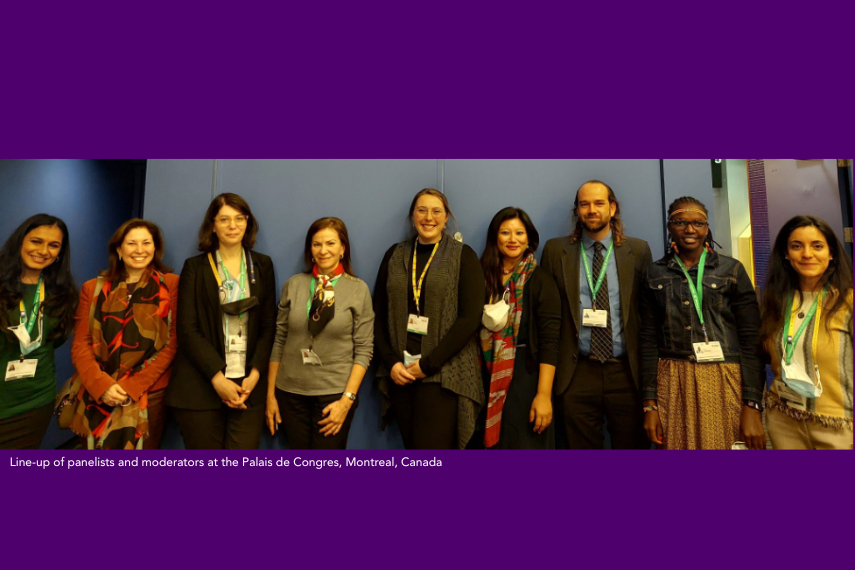A truly gender-responsive biodiversity policy does not only include the adoption of a stand-alone gender equality target (Target 23), but also of the post-2020 Gender Plan of Action, a mandate for the Fifteenth Meeting of the Conference of Parties to the Convention on Biological Diversity (CBD COP 15). In line with this, the UNCBD Women’s Caucus and the Secretariat of the Convention of Biological Diversity (CBD) organized “Ingredients to Operationalise the post-2020 Gender Plan of Action,” a COP 15 side event to identify the diverse opportunities for its effective implementation.
Under the co-moderation of Ana Di Pangracio, FARN’s deputy director, and Amelia Arreguin, UNCBD Women’s Caucus coordinator, the panel reflected on collaborative opportunities and synergies between women’s organizations and national governments for effectively implementing the post-2020 Gender Plan of Action.
Among the speakers were Milka Chepkorir (Kenya), Ivannia Ayales (Costa Rica), Shruti Ajit (India) from women’s organizations, as well as government representatives Vienna Pozer (Canada) and Eugenia Arguedas (Costa Rica). There were also representatives from international organizations, Paola Ridolfi from the Global Environmental Facility and Benjamin Schachter from the Office of the High Commissioner on Human Rights.
Discussions were organized in segments to gather perspectives from the ground, from women’s groups and from national governments. The goal was to cover ongoing initiatives, good practices and challenges, lessons learned and ways forward to realize the full potential of both the stand-alone target on gender equality and the post-2020 Gender Plan of Action in contributing towards the success of the Kunming-Montreal Global Biodiversity Framework. The panel’s diverse backgrounds, ethnicities and ages also enabled a holistic discussion.
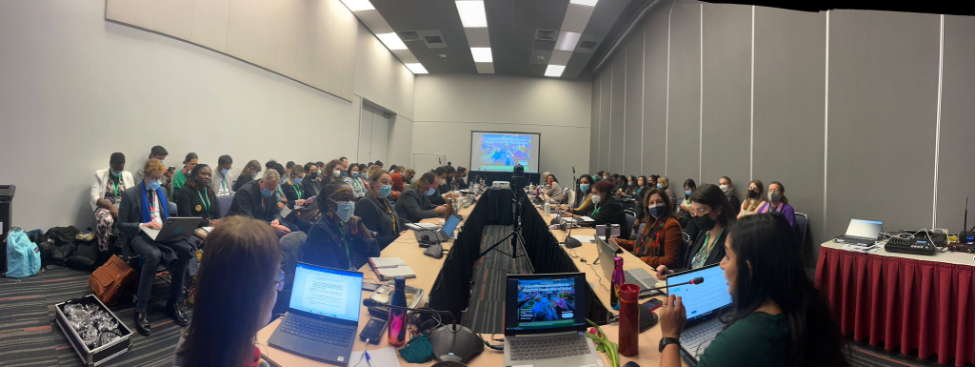
Perspectives from the ground
By providing daily life experiences, representatives from women’s organizations discussed which opportunities the post-2020 Gender Plan of Action will bring. First, we heard from Milka Chepkorir, Coordinator of the Community Land Action Now (CLAN), and as a member of the Sengwer Indigenous Peoples of Cherang’any Hills, highlighted that “being an indigenous woman and having worked for the rights of my community, I see great opportunities to include gender responsiveness in the GBF not just for women but for the whole community.”
Secondly, Ivannia Ayales Cruz, a social psychologist with more than 25 years with women in small-scale artisanal fisheries as an associate of CoopeSoliDar R.L., while speaking about women’s lack of access to education and opportunities, among others and the need for their genuine inclusion, stressed that “women can be the solution if they are given the opportunities.”
Women4Biodiversity Programme Officer Shruti Ajit, also a member of Kalpavriksh Environment Action Group, reflected on the need for consonance of the Gender Plan of Action with the post-2020 global biodiversity framework and remarked, “We learn a lot from our mothers & grandmothers, and they don’t get recognized in policy spaces.”
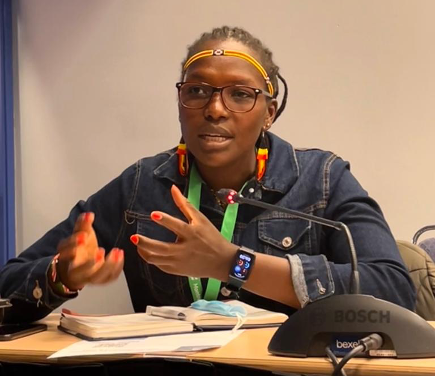
Perspectives from national governments
In the second session, we listened to government representatives reflecting on their main lessons learned, experiences or takeaways from the previous 2015-2020 Gender Plan of Action (GPA) and shared what will be their way forward to implement the post-2020 GPA effectively.
Vienna Pozer from the Government of Canada shared that “Having a target on gender will have an enhanced pressure and drive to have a targeted element and reporting for the governments…and having a headline indicator tied to that target.” Additionally, Pozer concluded that Canada “uses gender-based analysis in each and every of our policy analysis to make sure women inform our policy decision making. Canada also has a feminist international assistance policy.”
On her own, Eugenia Arguedas from Costa Rica’s government explained that “many times we have additional barriers as women, which is a constant struggle for recognition. Therefore, Costa Rica has passed a gender-responsive biodiversity strategy.”
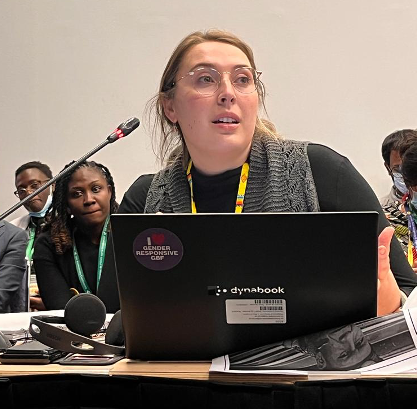
In the last part of the event, we heard Paola Ridolfi, manager at the Secretariat of the Global Environmental Facility, share her thoughts on gender-responsive financing. She stressed that the GEF “wants to engage women and youth as changemakers.”
“We want to connect with the implementors and women beneficiaries to validate the results of GEF projects to beneficiaries on the ground,” Ridolfi added.
Secondly, Mrinalini Rai, Women4Biodiversity’s Director, reaffirmed the panellists’ insights and pointed again to the importance of gender-responsive headline indicators for the GPA.
Finally, Benjamin Schachter from the Office of the High Commissioner on Human Rights provided his reflections on Human Rights and Gender Equality and emphasized the need for human rights for the entire global biodiversity framework, highlighting Target 22 which has an explicit link to the rights of women environmental defenders.
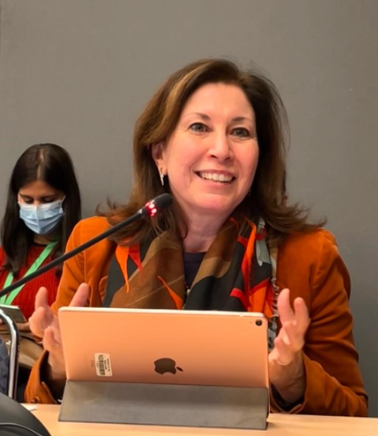
This event was co-organised by CABES – Capacity Development for Biodiversity and Ecosystem Services Experts in West, Central and East Africa, Centre for Development Support Initiatives CEDSI, CoopeSoliDar RL (Costa Rica), EcoMaxei AC (Mexico), Fundación Ambiente y Recursos Naturales (FARN – Argentina), Global Forest Coalition, ICCA Consortium, Journaliste for Human Rights (Macedonia), Noble Delta Women for Peace and Development Intl, Women4Biodiversity, and WWF International.
